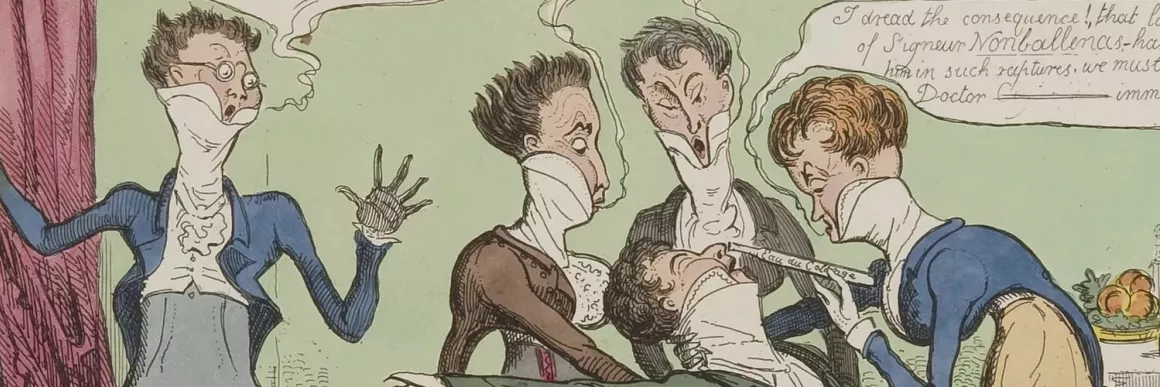"Psychosis and/as Cultural Crisis" introduces and contextualizes the relation between certain kinds of individual and cultural psychotic expressions during the Regency and George III’s comportment as the “mad king,” behavior tinged with psychotic overtones. “Psychosis” and “psychotic” will be used in this volume primarily to refer to Jacques Lacan’s theoretical explanation of psychosis as a psychic disorder; these terms will also be extended to the cultural arena in a way that his lectures in Seminar III already hint at. For society during the Regency, challenges to legitimacy and authority caused by the king’s madness reappear traumatically as psychotic cultural expression, literary expression, and the spirit of the cultural moment. Underlying the arguments of this volume is our conviction that the Regency serves analogically to inform our understanding of American life during the Trump regime. In that the Regency is the most concentrated period of the Romantic age for psychotic expression, it is a fitting historical and cultural parallel for what was a prevailing sense of psychosis—that is, of a failed Symbolic in which words have little meaning—in life under Trump. To familiarize readers with Lacanian concepts relevant to discussions of psychotic cultural and aesthetic expression, the introduction also provides a summary explanation of Lacan’s theory of psychosis as a psychical disorder that he finds to be revelatory.
Abstract
“Psychosis and/as Cultural Crisis” introduces and contextualizes the relation between certain kinds of individual and cultural psychotic expressions during the Regency and George III’s comportment as the “mad king,” behavior tinged with psychotic overtones.
"I feel it coming in the air tonight”: Mephitical Vapors, Pestiferous Plagues, and the Psychosis of Materiality in Wollstonecraft
Kate SingerAbstract
Although Mary Wollstonecraft is most squarely known as the post-Enlightenment progenitor of feminist reason and is often seen as allergic to the sexual body, this essay argues that throughout her works she evinces more posthuman and malleable forms of materiality and alternative psychic arrangements that subtend any “"reasonable”" law of the father.
Abstract
This essay argues that Beau Brummell’s reign as Regency dandy illustrates the pathological arc of a psychotic in the making. His celebrated eccentricities performatively enact the larger cultural psychosis of a period without a king and therefore without a clear relation to the symbolic function of the paternal metaphor and “the Law.” Brummell’s signature acts of defying the prohibitive Law, whether this is the law of social hierarchy or the laws of polite behavior, perform a defacement of the walls and block that which the patriarchal Symbolic erects around the subject.
Abstract
This essay examines Aurora Leighʼs reactions to an encroaching lime tree in Book I of Elizabeth Barrett Browningʼs 1856 novel in verse, Aurora Leigh. I suggest that Aurora's psychotic response to the tree, from the vantage of her domestic prison, can be considered part of Barrett Browningʼs complex reaction to Samuel Taylor Coleridgeʼs poetry and the legacy of male-authored Romantic poetry generally.
Abstract
My response to these essays speculates on two motivations for their revisiting the topic of Romantic psychosis now. One is the manifest derangement of top male leadership in the United States as it showcases the bankruptcy of phallic regimes and the need for more expansive, fluid alternatives. A second is how recent theorizations of mind/brain and body/mind/world entanglements reinstate the value of poetry in mobilizing a neurodiversified array of sensemaking processes.
About
Romantic Psychosis © 2024 by Elizabeth Fay and Romantic Circles is licensed under CC BY-NC-ND 4.0

